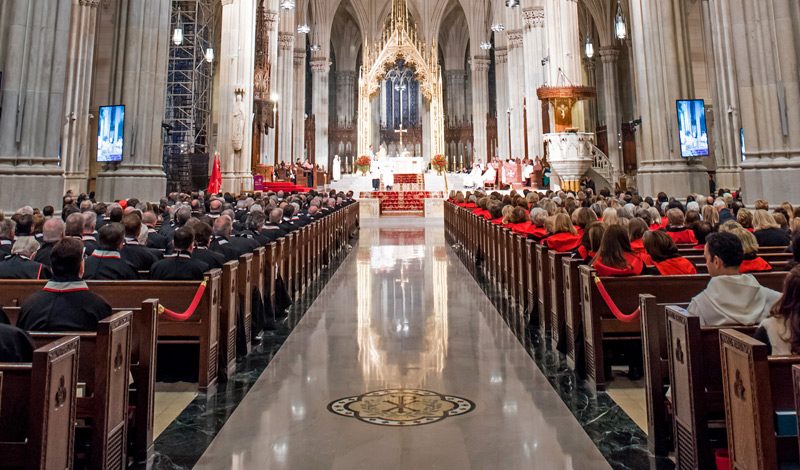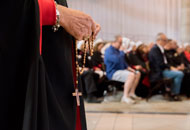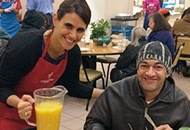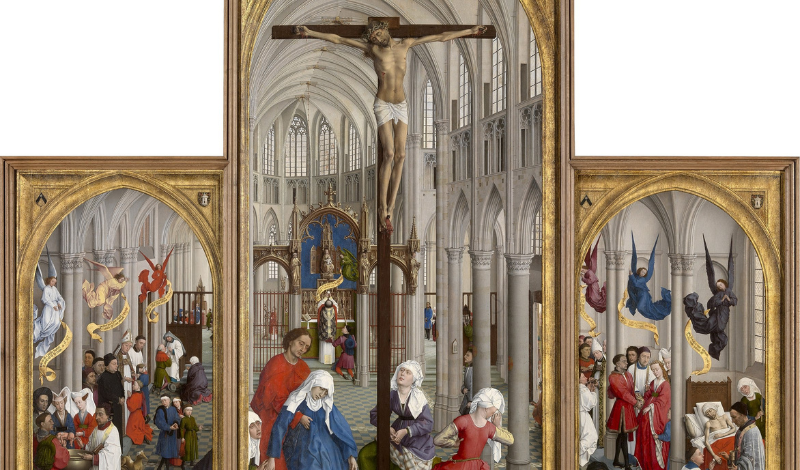This story is the fifth in the new “Best Practices” series from the American Association’s Prison Ministry Committee. Read part one here, part two here, part three here and part four here.
by Alexandra Lehmann
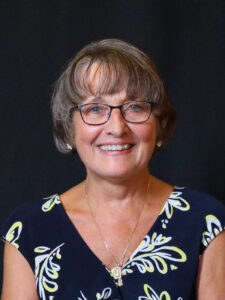
Every Tuesday at 8:50 a.m. Mary Jo Kriz, DM enters the prison and walks through metal detectors in a wardrobe designed to facilitate the institution’s screening process. Surrounded by the clanking of metal doors and correctional officers’ voices shouting over loudspeakers, M.J. must remain vigilant to the call of “Movement!,” the hard fast warning that time has ended with the people she ministers to in prison. They must prepare for an immediate transfer back to their cells.
Over fifteen years ago when Mary Jo was finishing her Masters of Arts and Ministry at Saint John Seminary in Brighton, Massachusetts, her graduate advisor recommended she complete pastoral formation requirements by serving in prison ministry. He must have known there was something not yet finished in M.J.’s attempt to complete her degree.
“Absolutely not,” she remembers grumbling, not understanding why she needed this kind of service commitment. M.J. admits that there was a time in her life when she could not feel compassion for everyone. What could she do for those who had most likely caused others grave and incalculable suffering? The Catholic social teaching that insists on the dignity of every human being was once lost on her.
Together with the prison’s chaplain and scared to death, Mary Jo began her work with the incarcerated. It continues today. “With the privilege of walking with everyone, I often get to see the core of what is inside of each and every person serving time inside,” M.J. says. Every Tuesday M.J. meets with six individuals, one on one, for an hour. They use a monthly devotional, Give Us This Day, published and distributed by the Order of Malta to read and discuss the following Sunday’s Gospel (Lectio Divina). Together they talk about where they experienced God during the week.
On its surface this question may be an easy one to answer. In the context of prison life, it can be an almost impossible one. It is a place where life’s focus is only on survival. As part of a calling in prison ministry, M.J. wants to help those who live inside to see that God has never left them– not during the trauma that most have suffered in their lives or during the crime they are convicted of committing, and now in prison.
The Ministry of Presence
When asked for an explanation about how M.J. attends to the incarcerated, she answers that she practices the “Ministry of Presence,” a concept she learned from the life and teaching of Pope John Paul II.
A recent definition from Loyola Press in Chicago, Illinois follows:
No matter the person God places in front of us, God calls us to accompany that person. Being with someone who has great needs -physically, emotionally and spiritually – can be challenging. Extending ourselves for the vulnerable or marginalized is not always easy or pleasant, though if we trust in God’s providence and allow ourselves to journey with another person in his or her pain or brokenness, we will be moved. […] Our faith is communal. The deepest truth of our faith takes shape when our religion shows others that their lives matter. […]. We give from our abundance, and we offer a ministry of presence. In doing so, we shine a light on the dignity of others. They become visible again. One action leads to another. Slowly, self-sufficiency and ownership are restored.[1]
Formally preparing those who live in prison to receive the sacraments is also an integral part of M.J.’s service. They, too, are concerned with their chances of getting to Heaven. She teaches them to try and think about the bigger picture. This includes the concept of free will and ability to make good and bad choices. Together they also reckon with and work through remorse and guilt; emotions they freely express. The concept of forgiveness is a part of their constant discussions, including self-forgiveness. M.J. wishes for the incarcerated – whom she calls her brothers and sisters, her friends – to get to know and prepare to receive the seven gifts of the Holy Spirit: wisdom, understanding, counsel, fortitude, knowledge, piety, and fear of the Lord. These are the character traits that Jesus Christ possessed – and also the ones he shared with the members of his Church. These seven gifts can also be perceived as gifts of salvation. Heaven, she teaches, is within reach.
When M.J. leaves the prison on Tuesday afternoons, she strangely cannot recall details of conversations. She remembers faces and calling every person by name so that each individual knows someone loves and cares. She often feels a moment of grace. When asked if she can relate the answers to where God is witnessed in the misery and horror of prison life, M.J. shares that connections often come with working and training dogs in the prison program, speaking on the phone with a long lost relative or friend, improving a relationship with a sister, getting along with a cell mate, or recognizing the prison’s sunset.
Mary Jo Kriz works as the Director of the Annual Fund/Board of Directors Liaison at the Saint John Seminary in Brighton, MA. She is the co-chair of the Amer. Assoc. Order of Malta Prison Ministry Committee. For more information on joining the PM, please email her at maryjo.kriz@gmail.com.

